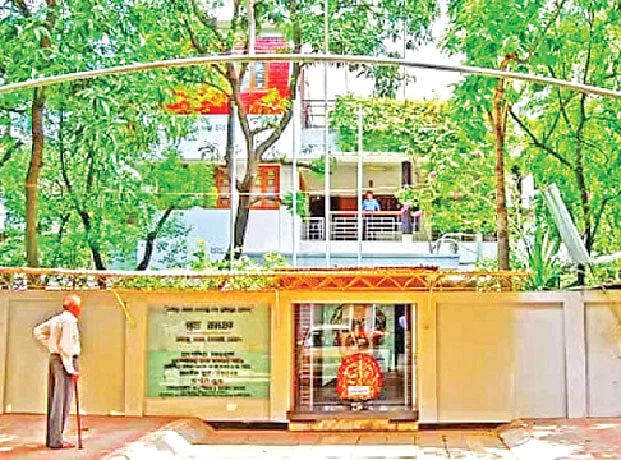
As I passed Jameel’s dead body and stood in front of the main gate of the lower floor, Captain Bashar who was with me asked me to go inside and look around the whole house. It was around 10 am. The killing of Bangabandhu and his family ended at approximately 5:30 am. Bashar also took the responsibility of taking me around the whole house.
Incidentally, this officer was the commander of the soldiers of the 1st Field Artillery Unit guarding Bangabandhu’s house, who stayed in the officer’s mess in the cantonment at night. He was brought in at dawn and told about the house charges (he later became a witness in the Bangabandhu assassination trial). As he went along he informed me that since morning I was the first military officer (except those involved in the coup), who had been allowed into the house.
It should be noted here that a few days ago
That is, at the end of October 1994, in the daily Ajker Kagaz, Lt. Colonel Hamid (now deceased) wrote about this coup. In his writing, he claimed that he was the only person who visited Bangabandhu’s house at 2.30 am on 15 August. I sent a protest to it and it was printed in that newspaper.
I don’t know why when I heard Bangabandhu’s proposal to go inside the house and see everything, a doubt arose in my mind about whether to go inside or not. Later I thought it would be appropriate to go and see. Because, even after reading the last chapter of the most tragic event of the bloody chapter of independent Bangladesh, seeing some evidence of it is like witnessing a historical event, which will be remembered for a lifetime. So I walked through the front door through the collapsible gate outside the door like a bit of a machine.
As I entered the house, my heart beat faster and faster. The smell of corpses was coming to my nose again and again. Along with that, the smell of gunpowder and the silence of death created a strange atmosphere. All in all, I felt like I was in a death trap. Unspeakable pain in the heart and deep depression in the eyes in response to that began to engulf me. Many have never had the good fortune to enter through this gate of the house of Bangabandhu Sheikh Mujibur Rahman.
The father of the nation and the president of Bangladesh.
I am now standing in deathly silence inside that house to which millions of people in Bangladesh would have longed to be near or be close. What a cruel irony of fate, under whose index finger the people of Bengal did not hesitate to give their lives, today there is no crowd, no crying or lamentation to see his dead body. On entering the room at the foot of the stairs, I saw the dead body of the police inspector on duty that night lying on the telephones placed on the front table covered in blood.
This uniformed police officer is another man who died in the line of duty. I don’t know if this unknown police officer will find a place in the history of Bengal! No, his name will be lost like countless martyrs who do not know the name of this country. A place in history or not, a police officer left a rare example of duty that day. Walking with a heavy mind through a place surrounded by the horrors of death.
I entered it and saw the bullet-riddled bodies of Bangabandhu Anuj Sheikh Nasser and one of his assistants. Sheikh Nasser’s dead body lies in front of the bathroom door. A look of panic on the face. Sheikh Naser had come to Dhaka from Khulna the previous day on the occasion of Serniabat’s daughter’s wedding ceremony. He may not have known that day that this was his last journey to Dhaka. The same feeling is called an appointment with death. I have heard many things about Sheikh Nasser before.
Bangabandhu’s lifeless body
He quickly left the room and stepped on the stairs to the upper floor. Halfway up the stairs, I saw that heartbreaking scene, which I still remember vividly. And that scene was the lifeless body of Bangabandhu lying on the stairs. I remember, in 1956, I was just a boy, I saw the then youth leader Sheikh Mujibur Rahman for the first time in my life in Rangpur. Due to his participation in the youth festival organized there.
My father used to work in the government in Rangpur. I used to study at Rangpur Zilla School. He came at the invitation of our landlord. It was there that I first saw a lively and handsome Bengali, rising politician Sheikh Mujibur Rahman. And today, almost two decades later, I saw the bullet-riddled, bloodied, lifeless body of Bangladesh President Bangabandhu Sheikh Mujibur Rahman lying on the middle step of the stairs of the second floor of his house. He is wearing a white Punjabi, check lungi, right hand on his chest, left-hand ist. His spectacles fell some distance away. Blood clotted on the stairs. The face is so calm. No sign of fear anywhere.
It seemed that even the slightest shadow of death did not fall on his face.